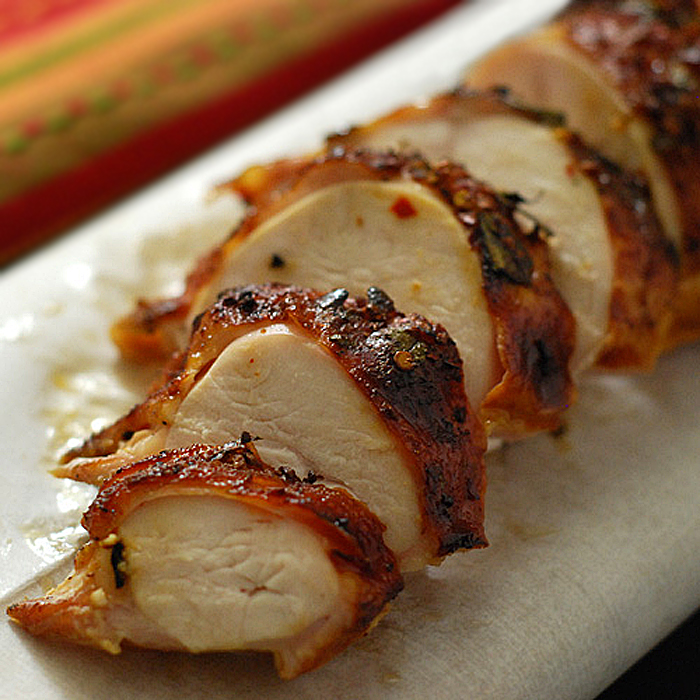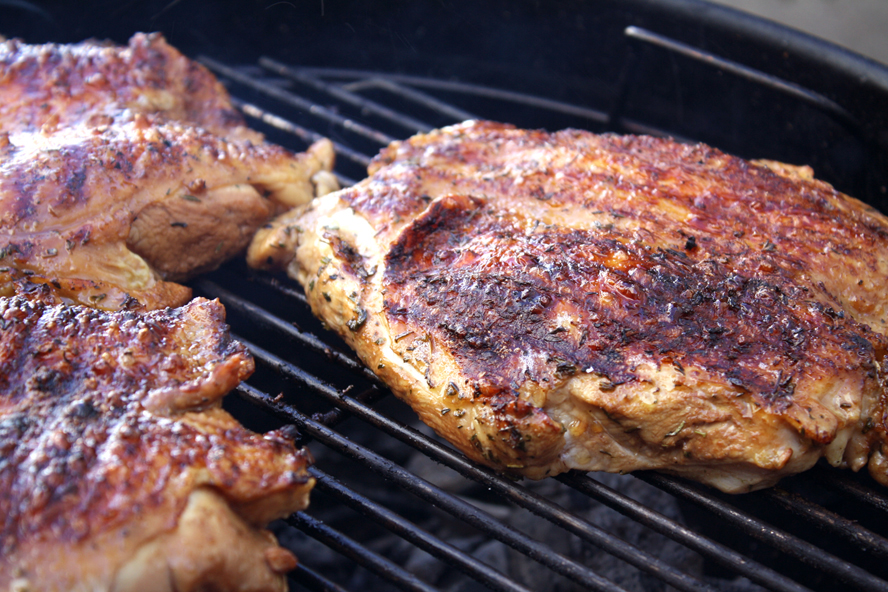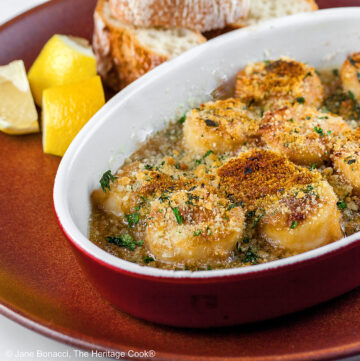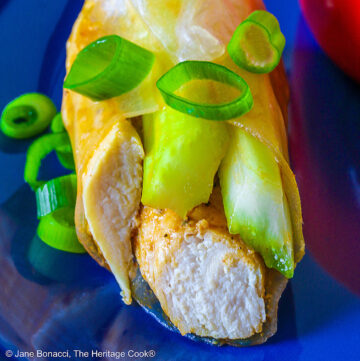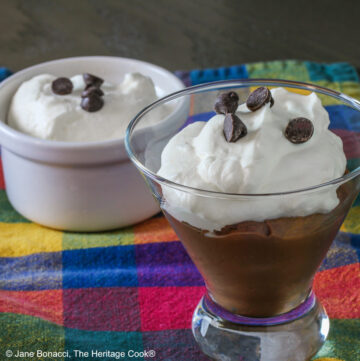This week I had the pleasure of meeting two of The Artist’s co-workers from France, Tarek and Alexis. Both of these gentlemen love good food and wine, almost as much as I do. We had a delightful dinner at one of San Francisco’s great restaurants, Spruce, and enjoyed an evening of amazing food, drinks, wine and conversation.
It is always interesting to talk with people from other countries, learning about their customs, cuisines, and finding commonalities. Some of the most interesting tidbits of information gleaned over the course of the evening were that both men have a Tunisian heritage, grew up in different parts of France, and have gone on to be highly respected in their field, two of the best in the world.
After a discussion of their favorite childhood meals, both with the Tunisian influences of their mothers and my mouth watering at their descriptions, I knew I wanted to create a meal in their honor. I went home, did a little research and came up with this recipe for a marinated chicken utilizing some of the more common seasonings of Tunisian cuisine.
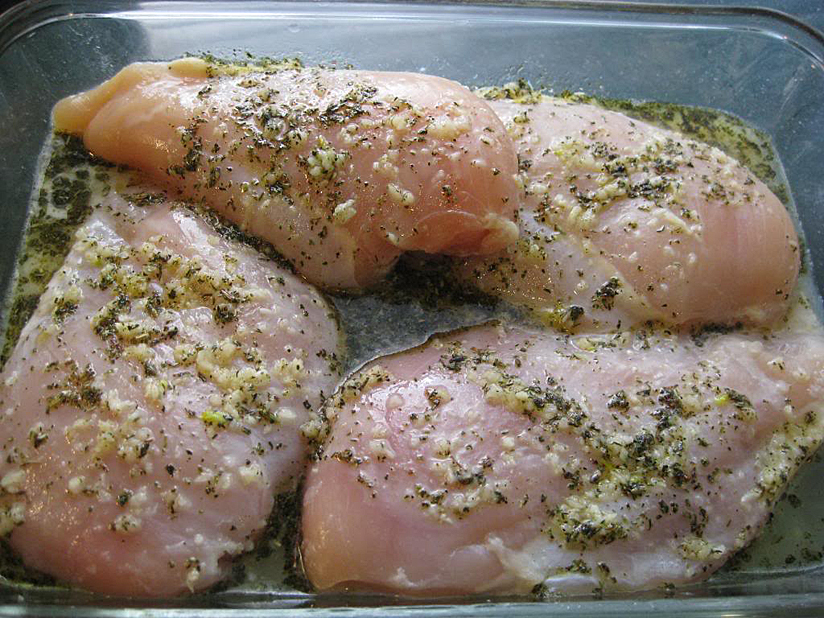
Marinating the chicken
Tunisia is located on the North Eastern corner of Africa, between Algeria and Libya, across from Sicily and the European Continent. It has a long border on the Mediterranean Sea making it strategic in the battles for control of the trade routes. Because of its location and history of invasions, it has a conglomeration of influences, both political and cultural.
Recorded history begins when the Phoenicians founded Carthage, a major sea power in the 8th century B.C. It became part of the Roman Empire in 146 B.C., which lasted until the 5th century. For 200 years various European tribes controlled it until the Muslim conquest in the 7th century. People migrated there from all over the Arab and Ottoman nations and it was assimilated into the Ottoman Empire in the 16th century. From 1881 until 1956 it was a French protectorate, when it won its freedom and became an independent republic, modeling its government after France’s presidential system.
With all of these cultural influences over the centuries, it is easy to understand the complex and delicious cuisine that has developed. Like all Mediterranean countries, there is a profuse use of olive oil, tomatoes, and spices used with seafood and meats. The primary influences are Berber, Arab, Turkish and Italian.
The Tunisian national sauce is harissa, a spicy red pepper sauce made from chili peppers, garlic, coriander, cumin, olive oil, and tomatoes. In addition to harissa, you will also find eggs, olives, pastas and grains, vegetables, nuts, fresh herbs and spices, wild game and farm animals used in Tunisian kitchens. The origins of similar dishes from countries around the Mediterranean are often good-naturedly disputed, with each group claiming prowess.
For today’s recipe I took some of the traditional Tunisian seasonings and combined them in a marinade for chicken. You can assemble the marinade a day ahead and then marinate the chicken before cooking, but be sure to give it enough time to absorb into the meat.
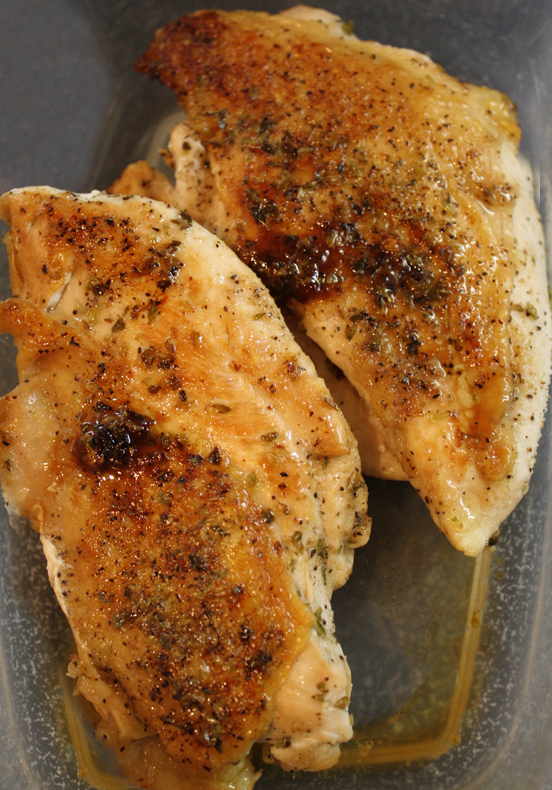
Letting grilled chicken rest and finish cooking
I like the smokiness that grilling over charcoal or wood gives the chicken, but it is important that you keep the pieces moving, on and off the heat to get grill marks but also cooking it through. If you don’t want to fire up the grill, you can also cook this in a 350°F oven. It will take 45 minutes to 1 hour, or until the chicken reaches an internal temperature of 160°F. Let it rest, tented under foil, for at least 10 minutes before serving. This give the juices time to be reabsorbed back into the meat, resulting in moister chicken.
If you have never tried this combination of herbs or are nervous about stepping out of your cooking comfort zone, give this a try. I think you will be amazed at the concentrated flavors that perk up your palate and titillate your mind. I promise you will be dreaming of this chicken for weeks to come!
I hope this brings smiles to the faces of Tarek and Alexis and reminds them of their family dinners.
Have a wonderful weekend and Happy Festive Friday!
Jane’s Tips and Hints:
Kitchen Skill: How to Grill a Whole Chicken
You can also cook a whole chicken if you prefer. Remove the neck and gizzard or packet from the cavity and rinse thoroughly with cold water. Pat dry with paper towels and marinate as directed in the recipe below.
If cooking on the grill, cook it, breast side up, on the cooler side of the fire with the lid on to create an oven-like effect. Place the air holes of the lid over the chicken. This draws the smoke and heat across the bird, increasing flavor and helping it cook more evenly. After 45 minutes, spin the bird (using tongs) so the opposite side is facing the coals. Add more charcoal if needed to keep the fire hot.
Depending on the size of your chicken, it will take another 45 minutes. Cook until it reaches about 158°F. Remove from the heat, place on a cutting board or tray and tent with foil, letting it rest for at least 10 minutes. The residual heat will finish cooking the bird, and the resting gives the juices time to be reabsorbed for the moistest chicken ever!
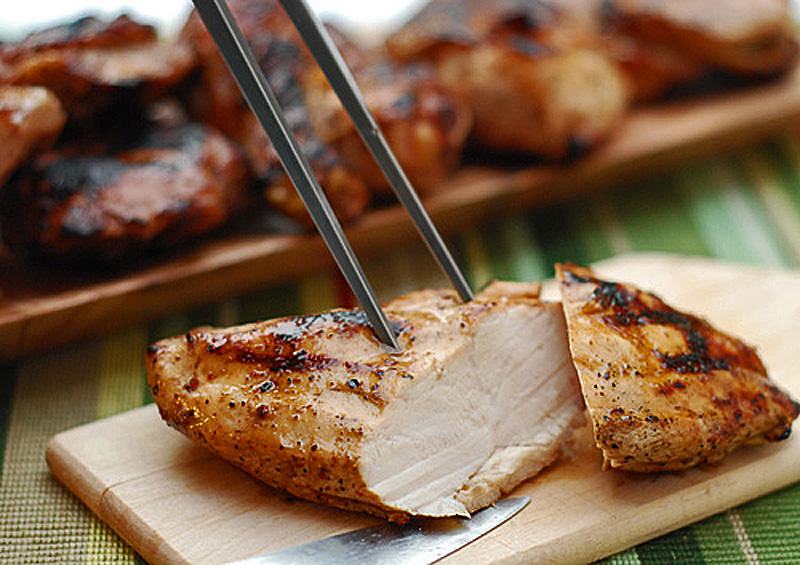

- 1 whole chicken, cut into pieces (or buy on-the-bone individual pieces)
- 1/2 cup organic olive oil
- 1 lemon, zested and juiced
- 4 cloves garlic, peeled and very finely minced
- 1 tsp turmeric, optional
- 2 tsp ground coriander
- 2 tsp ground cumin
- 2 tsp harissa seasoning blend (if available)
- 1/4 to 1/2 tsp dried red pepper flakes, Sriracha, or other hot chili sauce, (or a combination) or to taste
- 1 tsp kosher salt (preferably Diamond Crystal brand)
- 1 tsp freshly ground black pepper
- Marinate the Chicken: Rinse the chicken pieces and pat dry with paper towels. Place in a large plastic zip-top bag or bowl with a tight cover.
- In a medium bowl, combine remaining ingredients, stirring until completely blended. Pour over chicken and seal bag (or cover bowl). Refrigerate for 4 to 8 hours.
- Cook the Chicken: Prepare a 2-tier charcoal fire, banking most of the hot coals on one side of the barbecue. Click Here for more information on 2-tier fires. When the coals are hot, place the grill on top and scrub it clean.
- Remove chicken from marinade; discard marinade. Wipe off excess marinade and place, skin-side down, on the hotter side of the grill. Cook about 4 minutes on the first side or until you have good grill marks and the chicken releases from the grill on its own. Using tongs, flip to cook the second side. Cook another 4 minutes or until chicken releases easily.
- Move to the cooler side of the fire, still on the second side. Cook another 3 minutes and flip back to the first side to continue cooking until done, moving between the hotter and cooler side of the grill as needed to avoid burning. Move pieces away from the heat as they finish cooking, starting with the smallest pieces. Chicken is done when it reaches an internal temperature of 160°F. Use an instant read thermometer and remove from the heat and set aside, tenting with foil. As it rests it will come up to about 165°F, remaining moist and tender.
- Serve hot or at room temperature. You can pass additional hot sauce at the table if desired. Refrigerate any leftovers as soon as possible.
Thank You!

